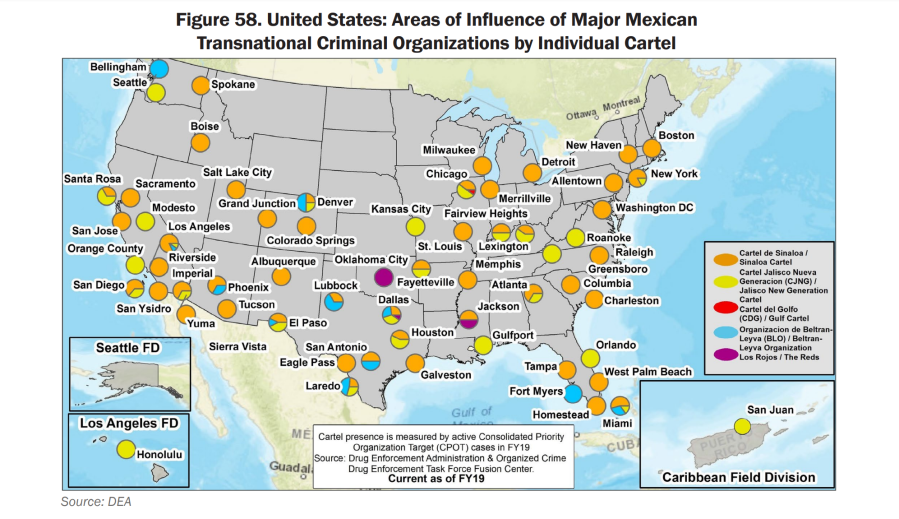(NewsNation) — It’s still unclear if a shooting in Central California that left six dead this week was directly related to a Mexican cartel dispute, but experts say it can be hard to make that determination.
A 16-year-old mother and her 10-month-old son were among the victims in what local police have called a “cartel-style” execution. Law enforcement has determined some people at the home had gang and drug associations.
If the attack ends up being tied to an inter-cartel dispute, it would be an uncommon instance of “spillover violence” in the United States.
“While drug-related violence in Mexico remains a concern, there is minimal spillover violence in the United States, as U.S.-based Mexican transnational criminal organization (TCO) members generally refrain from inter-cartel violence to avoid detection and increased scrutiny by law enforcement,” the Drug Enforcement Agency (DEA) wrote in its most recent National Threat Assessment.
The cartel-related violence that does occur in the U.S. tends to take place along the southwest border and is mainly associated with “trafficker-on-trafficker” incidents, the DEA noted.
Those who study Mexican cartels agreed that the organizations tend to be much less brazen on U.S. soil.
“They (cartels) are deterred by effective U.S. law enforcement and judicial entities but in Mexico, they’re not,” said Nathan Jones, a nonresident scholar in drug policy and Mexico studies at Rice University.
That’s one of the reasons the homicide rate in Mexico is about five times higher than in the United States, Jones pointed out.
Jones said he hasn’t seen evidence that spillover violence is increasing, but said it’s hard to measure how much violence in the U.S. is directly linked to Mexican cartels.
“Oftentimes this type of violence will be subcontracted to local street gangs, prison gangs, and local actors,” he said.
In other words, drug disputes that ultimately stem from cartel activities may be attributed to domestic street gangs instead.
Although rare, blatant cartel violence in American cities does occur.
In May 2013, Juan Jesus Guerrero Chapa was gunned down in the parking lot of a Southlake, Texas, shopping center. Authorities say two assassins were sent from Mexico by cartel leaders to carry out the hit against Guerrero-Chapa, who was the longtime personal attorney for the former head of the notorious Gulf Cartel.
Earlier this month, Mexican authorities arrested Jose Rodolfo Villarreal-Hernandez, also known as “El Gato.” Villarreal-Hernandez was on the FBI’s Ten Most Wanted list for allegedly orchestrating the 2013 ambush in Southlake.
The DEA’s latest assessment found major Mexican cartels operating in at least 60 American cities. That activity extends as far south as Miami, Florida, and as far north as Bellingham, Washington.

Some national security experts are concerned spillover violence will become more common as a record number of migrants cross the southern border.
“My expert opinion is that we’re going to see an increase in cartel violence within the United States in all of its forms,” said Charles Marino, a former advisor to the Department of Homeland Security and the CEO of Sentinel Security Solutions.
Marino said many migrants crossing the border are human trafficking victims who will have no choice but to continue working for the cartels.
Data shows that in recent years Immigrations and Customs Enforcement (ICE) has been removing fewer gang members who are in the country illegally. In 2019, 5,497 suspected gang members were deported. In 2022, only 2,667 suspected gang members were removed from the U.S.
Marino believes that decline is a direct result of Biden administration policies that narrowed the scope of ICE agents’ duties.
In a memo sent to ICE leadership in Sep. 2021, Department of Homeland Security Secretary Alejandro Mayorkas directed ICE agents to focus on those with serious criminal histories and said being in the country illegally “should not alone be the basis of an enforcement action” against an individual.
In June, a federal judge in Texas vacated the enforcement guidelines set forth by Mayorkas.
